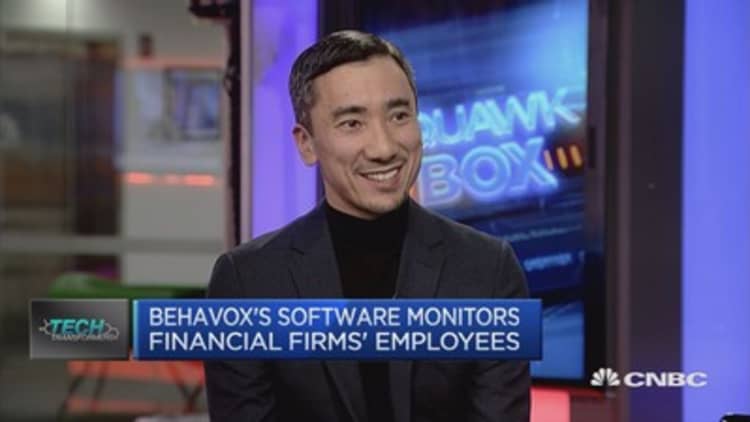Over the course of a few evenings in 2013, the heads of trading from major investment banks got together for some poker nights. It was a bit of relaxation from their hectic schedules. But what their seemingly-innocent hands of Texas Hold'em revealed was a story of traders gone rogue.
After every poker night, there would be a big spike in the profit and loss (P&L) statement for the traders involved because they would be colluding and tipping each other off about trades.
But it wasn't until 2015 that this was discovered when the companies were under investigation by authorities. A law firm brought in to look into the suspicious activity was handed piles of communications documents, but it was artificial intelligence (AI) software that managed to find the link between poker nights and the collusion that had taken place.
It can be hard for investigators to draw conclusions from the mass of documents they have to wade through. How can you connect a private poker night to illegal trading? Behavox is a U.K. start-up that uncovered the wrongdoing. Its software can link seemingly unrelated things to help compliance staff within financial organizations find rogue traders, by recognizing behavior that strays from the norm.
"A poker night would have never got flagged as you didn't know you should be looking at it as something suspicious," Erkin Adylov, chief executive of Behavox, told CNBC in an interview.
"The relationship between the people involved is the reason we flagged it. The three people who kept playing poker were very close and seem important, i.e. there seemed like there was a business relation. The fact that these guys spent a ton of time playing poker when they were clearly busy was the first thing we highlighted. When you analyzed P&L and overlaid one data set with another, there was a big spike in P&L after the poker night. When we highlighted, the compliance guys were able to connect the dots and found it was a case of collusion."

Behavox uses machine learning – where its algorithm continues to improve with more data – to analyze employees within an organization. It allows the software to build up a picture of workers and then flag anything that appears out of character. It could be something as granular as using an obscene word in a message to a colleague, to the way you speak to people on the trading floor. The current problem is that compliance officers and investigators could have to sift through millions of documents of message logs or financial statements and not necessarily draw a link between them.
The start-up is trying to build up a database of past misconduct in order to help financial institutions deal with bad behavior, something that can be challenging because companies don't want to give others an insight into wrongdoings within.
"One of our biggest problems when we were starting out was the fact that you can't build software unless somebody gives you the data set. And nobody is going to give you the data set until you actually have the software, so it's a chicken and egg situation," Adylov said.
However, law firms brought in to investigate are "playing defense" and are happy to give data to Behavox to help, the entrepreneur said.
It's a solution that should be welcome to many large businesses given that the banking sector has been hit with billions of dollars of fines over the last few years with the whole industry in the crosshairs of regulators. In the U.K., senior managers could face jail time if their employees make bad decisions which leads to the failure of a bank. Behavox is hoping it can win clients by explaining the need to know what's going on within a business.
So far, hedge fund Marshall Wace and interdealer broker TP ICAP are using the software. Adylov said Behavox has 15 clients in total and is hoping that number will "escalate dramatically" this year. Last year, Behavox raised $3 million from a round of funding from London-based venture capital firm Hoxton Ventures and Chicago's Promus Ventures. Adylov would not reveal the company's valuation but said it is already getting takeover offers "north of $100 million", after being in business for just two-and-a-half years.
The poker story is just one of many interesting examples Behavox's software had found. Another involved traders using menu items from popular food chain Nando's in the U.K. to hide illegal trading activity.
A potential challenge to the business could come from the U.S. where President Donald Trump has talked about deregulation of the banking sector including a repeal of the Dodd-Frank law which came into effect to stop another financial crisis. But Adylov said Trump is unlikely to do anything that would make insider trading legal for example, but instead would slow down the introduction of regulation so banks could catch up. In this instance, companies would still need Behavox, the founder said.
"From our perspective, our clients are not reducing their spending on compliance. More importantly, all of our clients are focused on doing the right thing and people are tired of not knowing what is going on within their organization," Adylov told CNBC.





